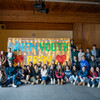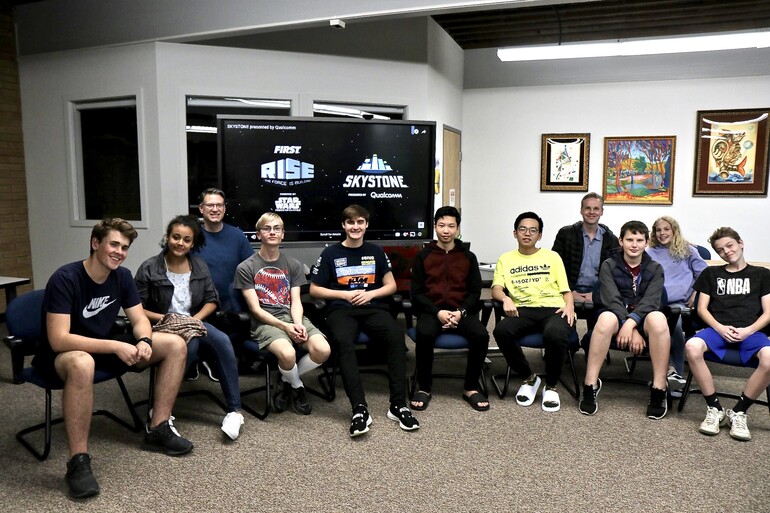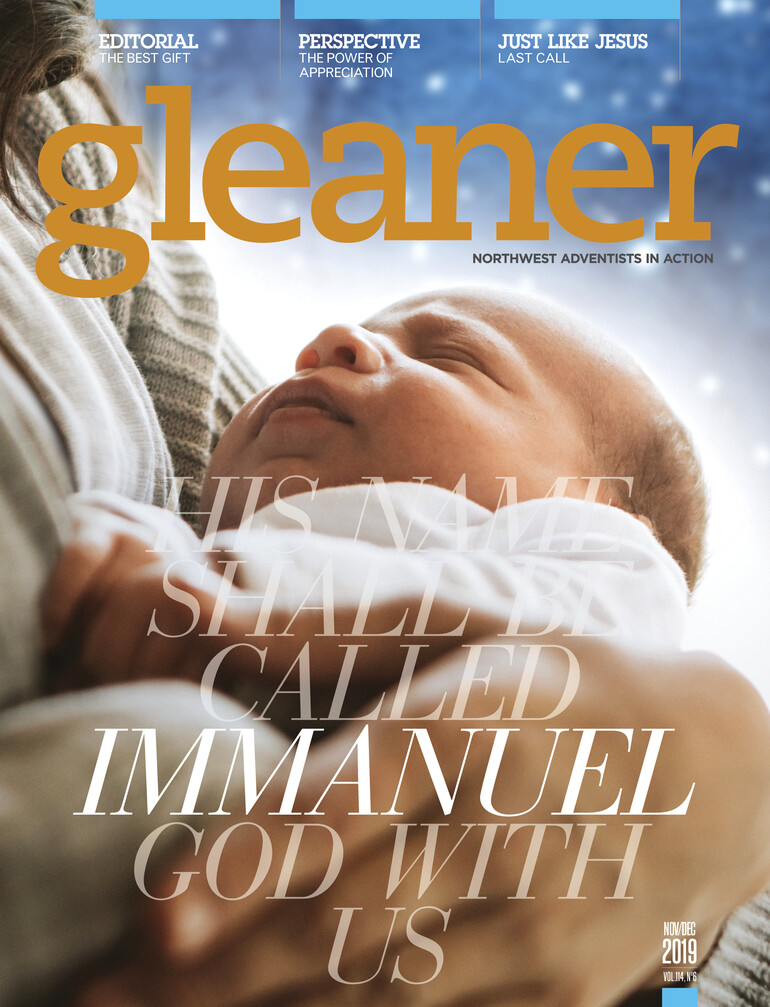If you walk by the Auburn Adventist Academy library in Auburn, Wash., on Tuesday evenings between 6 and 7 p.m., you’ll find a dozen eager faces seated and staring intently at a 58-inch computer screen. It’s not movie night or a study hall. Rather, they’re going through the FIRST Tech Challenge Game Manual for 2019–2020.
The facilitator is Tom Butler, one of the adult coaches. Discussions revolve around sensors, solenoids, Java programming, core servo controllers and other foreign-sounding terms.
Butler throws out the question: “Okay, so how do we communicate between our Android device and the Core Device Interface Module?”
Welcome to the weekly meeting of Falcon Robotics, the freshly inaugurated STEM (science, technology, engineering and math) club at Auburn Adventist Academy. FIRST Tech Challenge brings together teams of up to 15 members in grades seven through 12 and challenges them to design, build, program and operate robots to compete in a head-to-head challenge in an alliance format.
FIRST Tech Challenge is pioneered by FIRST — an organization founded in 1989 and now the world’s largest nonprofit dedicated to youth STEM education. STEM education is not new to the Adventist Church. It was 15 years ago that a group of Adventist students, teachers and mentors partnered with FIRST in order to promote the importance of STEM education in Adventist schools. The result: Adventist Robotics League (ARL), sponsored by the NAD education department.
The goal of Falcon Robotics is to build a robot that will be ready to compete and play a floor game against other teams’ creations at the annual FIRST Tech Challenge competition April 26, 2020, in Orlando, Fla.
The idea of starting a robotics club at Auburn Adventist Academy was inspired by Butler as well as Jeffrey Walker, two local parents who work in the tech industry. It really was born out of a season of prayer and intercession. Both gentlemen started weekly meetings last spring to pray over their businesses. But they soon sensed a mutual burden to help prepare young people for leadership skills in technology within a Christ-centered environment.
As Walker points out, “The idea that we’re living on the edge of one of the world’s major technology hubs spells so many opportunities for our youth to get involved in technology and to be ‘salt and light’ in their communities. So we started by asking ourselves the question: ‘Why isn’t there a club on our campus that teaches those critical STEM skills?'”
Falcon Robotics is not just about kids building robots, but rather about “robots building kids.” FIRST looks at robotics as a channel for building the soft skills that lead to success in the real world — attributes such as communications, collaboration and “gracious professionalism.”
Butler can’t agree more: “The kids are really the key decision makers. We’re just facilitators, but they’re ultimately responsible for branding, marketing and fundraising this initiative. We’ve set a goal for ourselves to be in Orlando with a competition-ready robot by the end of April. So, our goal is to help them ask the right questions about how a financial contribution could help get the team to the ARL competition.”
If you’d like to learn more about Falcon Robotics or how to contribute financially to this exciting initiative, please email Falcon Robotics.











